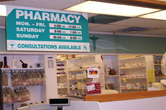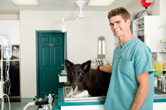Looking to open a dental practice but don’t know where to start? Working as a dentist for other practice owners will only take you so far; to take your professional career to the next level, you must open your own practice. Rather than helping to boost the credentials of your competition, all of your hard work will go towards building your own practice. In this post, we’re going to reveal 5 important tips for opening a dental practice.
1. Define Your Service
Before officially opening a dental practice, you should first decide what types of services you want to offer. Some dental practices focus strictly on cleanings, while others perform cosmetic and/or surgical work. The advantage in expanding your services is that you’ll attract more customers and revenue, but the disadvantage is that you’ll likely need to hire associate dentists.
2. Research The Demographic
Another important tip for opening a dental practice is to research the surrounding demographic. Doing a little investigative research into census numbers will reveal key information about the city. Using this information, you can make smarter decisions on how to better run your dental practice.
3. Choose an Easy-To-Find Location
Make sure your dental practice is set up in a location that’s easy for clients to find. If customers are forced to drive down obscure back roads to reach your practice, you can count on some of them taking their business to one of your competitors. Ideally, new dental practices should be set up in a high-traffic part of town that’s next to a major highway. When customers call to ask for directions, you should be able to provide them in just a few short sentences.
4. Hire an Accountant
Some dental practice owners may brush accountants off as an “unnecessary expense”, but they’re usually worth the price. A professional accountant will help organize your financial documentation, while offering guidance on tax write-offs and other information. Just remember to choose an experienced, licensed accountant that you can trust with your financial documentation.
5. High Population, Low Competition
When choosing a location for your dental practice, look for places with a high population density and low competition. Again, population numbers can be found at your local library, or you can hop online to view records on state-run websites. However, you’ll have to perform your own investigative work to determine the number of competing dental practices in the area.









